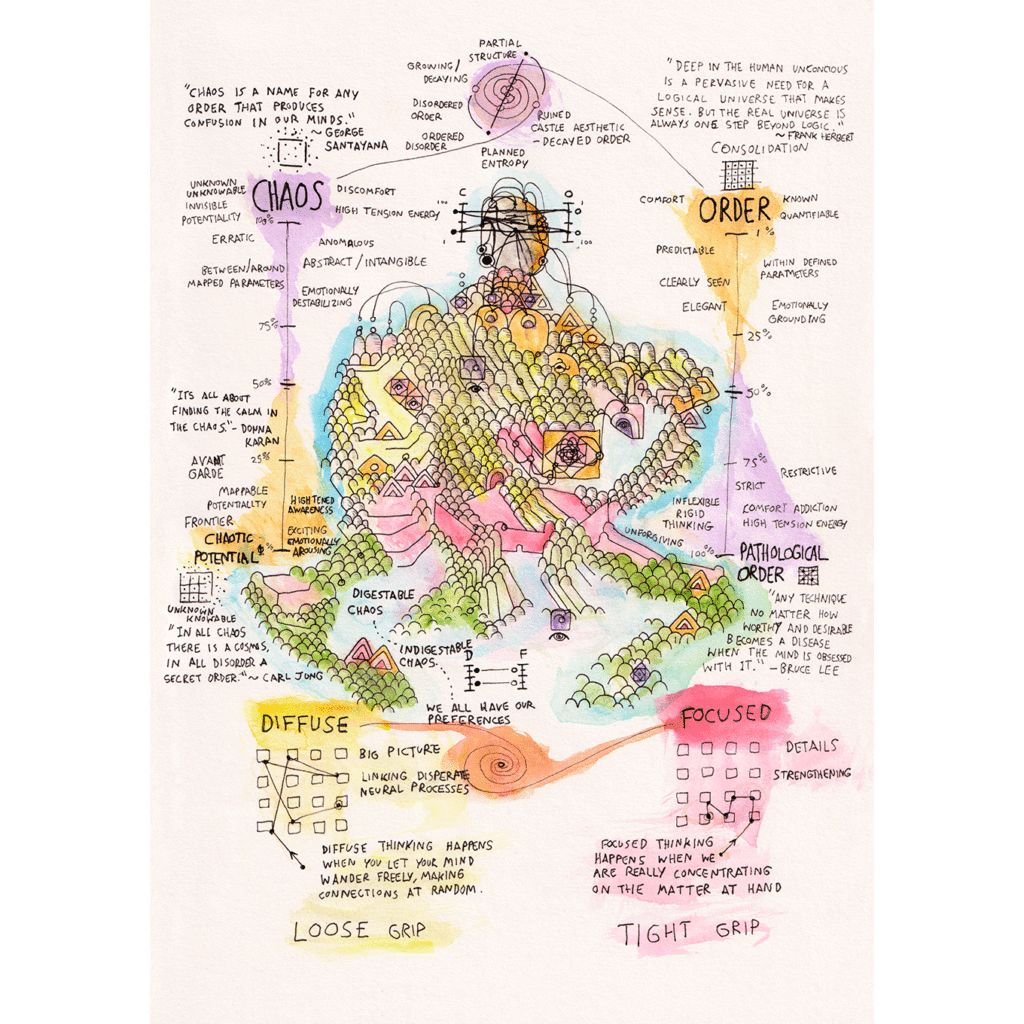Chaos eating
What is unfamiliar becomes familiar through a kind of curious exposure. To venture into the unfamiliar, we depart from the comfort of knowing into the anxiety of unknowing. With repetition, our curiosity rewards us with a perception of the nuances and variables involved in traveling a particular path, allowing us to overtime modulate and play creatively with what was once unknown and inaccessible.
‘The mind is just a reflex organ.
It reacts to everything.’
– Socrates (Peaceful Warrior)
Our minds are sticky; as we live experiences, we reflexively attach to more and more associations and impressions; what cannot be understood will tend to stick to our minds the most. The mind naturally seeks to understand the unknown through analysis until we begin to sense again this feeling of safety; of knowing.
The Puzzle of Value
The value of a puzzle is in its understanding. When a puzzle is solved, it loses much of it’s value. In this respect chaos is an essential prerequisite to growth and learning of any kind, and we need a constant steady supply. We must feed ourselves a little chaos each day to add continually to our maps of reality.
Stagnation is a symptom of a hunger for the unknown. When we desire only to rest in the safety of what we know, we trap ourselves in pathological order – An order that rejects curiosity, favoring excessive curation of what is already known. On the other side we have unbridled chaos – A chaos too cryptic, thus rendered traumatically confusing.
We walk in chaotic potential when we venture just a little beyond our knowledge boundaries. With humility we see where we lack and then can hone in on the areas of most potential. Risk and potential exist in symbiosis, and calculated risk maximizes potential.
“Uncertainty is an uncomfortable position.
But certainty is an absurd one.”
– Voltaire

